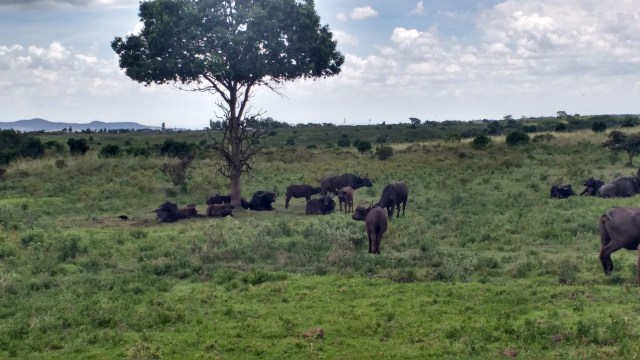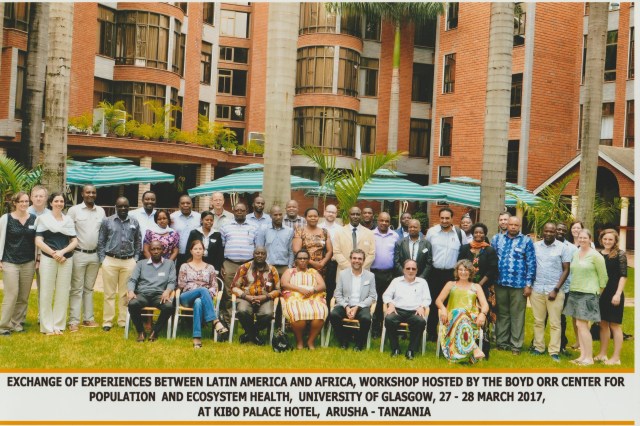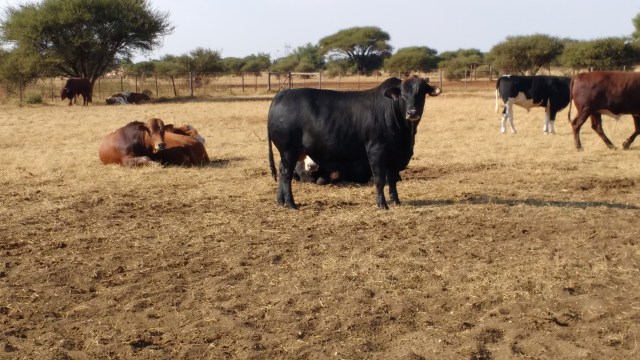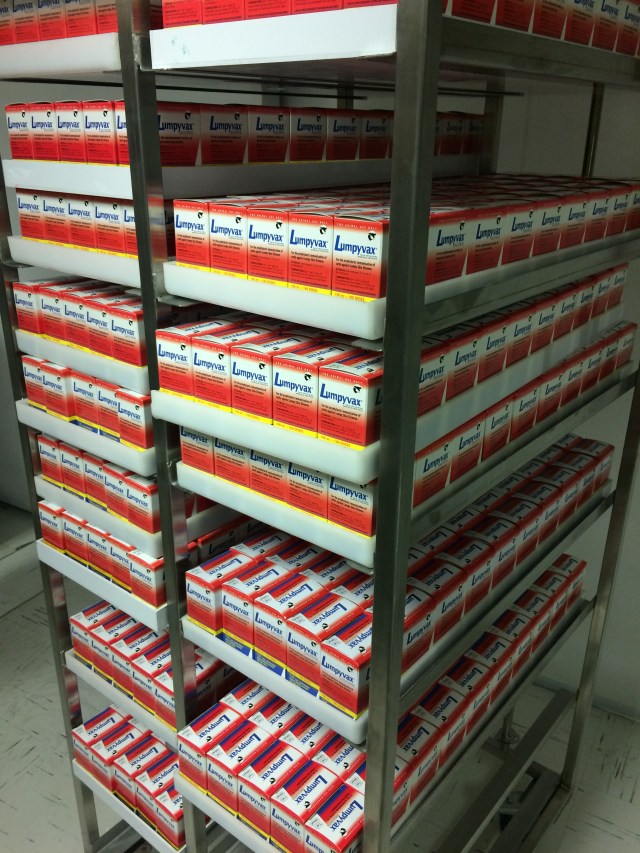Home \ Knowledge Hub \ Opinion \ Catching up on Transboundary Diseases Around the Globe


01 Jul 2017
Catching up on Transboundary Diseases Around the Globe
SHARE

ALASDAIR KING
Executive Director, International Veterinary Health
It has been a busy quarter for us, with everyone in the team travelling to different places. This included a visit to South Africa to see Lumpy Skin Disease cases and learn from the experience of the disease that they have in that region. It was good to see how vaccination can help prevent the spread. In addition we have launched this years World Rabies Day awards and a MSD Animal Health Fellowship with Mission Rabies. As well as the conferences reported we have attended the International Poultry Council First Semester Conference and an FAO workshop on PPR.
FMD and Rabies vaccination workshop in East Africa

John Atkinson was invited to participate in a workshop in Arusha, Tanzania (27-28 March 2017) on ‘What Makes Large-Scale Vaccination Programmes Work’, which was hosted by the Boyd Orr Centre for Population and Ecosystem Health, University of Glasgow. This excellent initiative brought together international vaccine manufacturers, experts in large-scale vaccination programmes and health interventions from Latin America and Africa, rabies and FMD scientists, leading government authorities responsible for disease control in Tanzania, and private sector representatives. Through presentations, group work, videos and even music, experiences on rabies and FMD control were shared and discussed. With many projects on-going in the region the workshop proved an excellent opportunity to bring stakeholders together, and ensure many different perspectives were taken into consideration to help develop coordinated strategies to overcome these serious health and welfare threats. The passion shown throughout the event for tackling rabies and FMD was encouraging, and it was a privilege to be able to contribute to the workshop.

South Africa
As part of our ongoing commitment to the control of the spread of Lumpy Skin Disease, John Atkinson and Chanty Toenders had a trip to South Africa. They had a chance to visit the plant where vaccine is made and explore options for improving the logistics of delivery to Europe. But more importantly they were able to get out on to farms and talk to farmers about their experiences, listening to people who have had experience dealing with this disease for decades. We know that it is always a concern when faced with epidemics of a new disease, being able to use our global network to learn from those with prior knowledge, and bring that knowledge back in order to improve control measures is an important part of what we can do as partners in disease control.


OIE General Session
John Atkinson, Allison Flinn, and Alasdair King all attended the 85th OIE General Session in Paris during May. This is a key event of the year, the opportunity to talk to CVOs and key opinion leaders during the coffee and lunch breaks being as important as the agenda sessions. There was some very positive discussion on Public-Private Partnerships lead by the Bill and Melinda Gates Foundation. PPR remains high on the list of priorities for the OIE, but FMD and Lumpy Skin are a continuing concern. The review of avian influenza provided important information on the spread of the disease, including the fact that there have been five times as many outbreaks of HPAI reported in the previous 8 months as in the previous 3 years.

Richard T. Clark Fellowship with Mission Rabies
Every year MSD runs a Fellowship for Global Health programme, with employees spending three months working with non-profit organisations. We are really excited to announce that this year includes the first Animal Health fellowship which will involve support for Mission Rabies. Of the three people going on this project, one is from Animal Health and two from Human Health, showing how rabies really is a One Health issue. Luke Gamble of Mission Rabies responded to the news, saying “‘Mission Rabies is hugely honoured by the fantastic opportunity awarded by the Richard T. Clark Fellowship programme. Not only do we have the potential to keep powering on with our objective in eliminating canine rabies from some of the world’s worst global rabies hotspots, but we now have a chance to use the MSD fellows expertise to broaden our projects in tackling other infectious disease and establish networks for vital pharmaceutical supplies. This will hugely enhance the remit of the charity in sustainably helping both animals and people in some of the worlds most deprived areas.’”
The first Animal Health fellow to engage with Mission Rabies in Malawi, Anoushka Shah, is thrilled to have been selected: “I see the fellowship as a fantastic opportunity to work in a different global market. I’m looking forward to enhancing my current skills by being part of a great team with wide and extensive experiences. I believe our short term dedication will make a positive long term impact in the NGO’s mission of reducing the burden of a zoonotic disease. I hope to adapt the skills I learn, working in an environment with limited resources and unfamiliar challenges, when returning to MSD. I am proud to continue to make a difference in the welfare of both humans and animals.”
World Rabies Day Awards
This year we are again sponsoring the World Rabies Day awards, in conjunction with the Global Alliance for Rabies Control. We will will be recognizing individuals and organizations who work to prevent rabies in their communities and, most importantly, these awards will help raise global awareness for rabies champions in an effort to strengthen their support on an international level. Eight awards will be presented, with the winners receiving $1200 (or resources of equal value). Nominations can be submitted until August 7th here
EuFMD 42nd General Session Rome
In April Marta Nowak attended the 42nd General Session of EuFMD in Rome where discussions were held on FMD preparedness in the face of recent outbreaks in the proximity of Europe. This biennial meeting reviews the progress made in FMD control and is an excellent opportunity to learn about the pain points and areas where assistance is needed. The focus this year was on the unpredictable FMDV spread patterns and emerging risk areas (South Asia) posing new threats for Europe and the neighbouring countries. The main concern was the lack of suitable vaccines to provide protection; the A/GVII remains a challenge to match and the investments by industry need to be adequately prioritized. Collaboration, both inter-country and inter-regional, as well as with the private sector, plays a critical role in successful FMD control. Information exchange and sampling are examples of areas where there is still a lot to gain. Early reporting is key in order to prevent the spread, especially in view of the increased dynamics of FMD incursions. As it remains crucial to recognize the disease quickly, work is being done to increase access to trainings and we were glad to hear that eMergence was recognized as a good source of information contributing to this important field. While FMD awareness is widely recognized as important, the shortage of parallel courses on other exotic diseases, such as lumpy skin disease, deserves more attention and countries starting their awareness campaigns might need support.
ALASDAIR KING
Executive Director, International Veterinary Health

